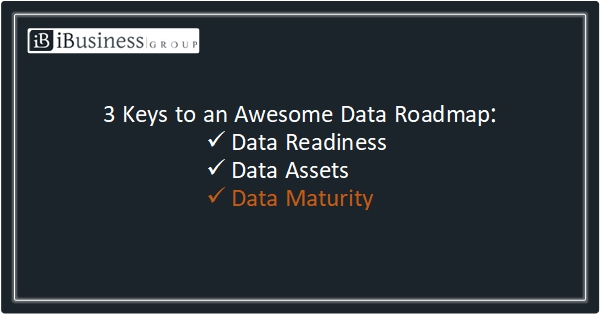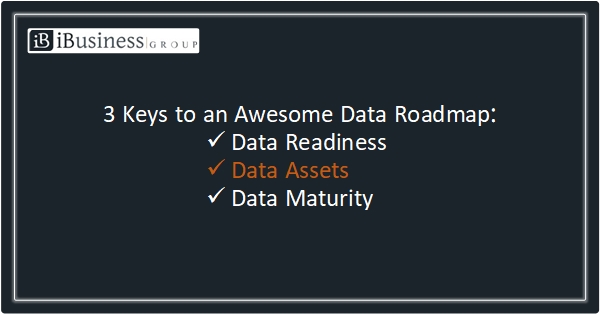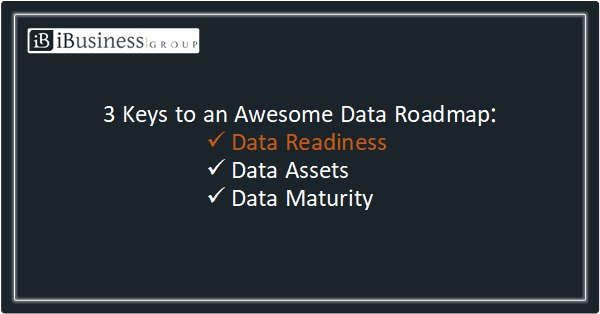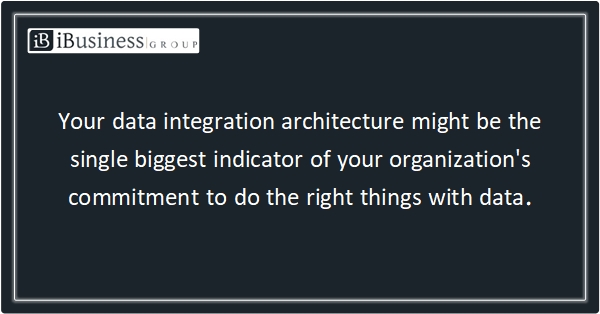This third and final in a series of articles on the three key components of an effective data roadmap will discuss how an increase in data maturity needs to be an intentional part of your data roadmap.
Data and analytics maturity is a concept often brought up in data conversations yet most organizations do not know what data maturity looks like, how to evaluate data maturity, or where they are in their data maturity journey. I have encountered several challenges with data maturity over the years, three of which we will discuss here.
The first and most prevalent challenge with data maturity is a lack of a common understanding of what is data maturity. We could all probably recognize maturity if we see it and we usually all recognize when it's lacking. However, that isn't good enough if we are going to create tangible, actionable data roadmaps to address the immaturity. Plus, if you ask dozens of people to fill out a generic maturity assessment survey, and each participant has their own definition of maturity, how valid or applicable will the results of the assessment be to your specific journey?
The second challenge with data maturity is that there are limited ways of measuring current-state maturity that at the same time produce actionable and strategic steps for increasing maturity that also align with your org/op model, your execution model, and other elements specific to your data roadmap. Big research organizations have maturity assessments, but they tend to be pretty vanilla and cookie-cutter in their recommendations, forcing you to make big jumps in interpretations, or worse, completely misunderstanding the intent of the recommendation altogether.
Finally, the question frequently comes up regarding how an assessment score compares. What I find interesting in the comparison is that most often the comparison is used to either make us feel good that everyone else must be as bad as us or we try to explain away our low maturity with reasons why our situation is different, harder, or more complex than the other companies in the benchmark, without knowing a thing about their situation.
In spite of these challenges, data maturity must be one of the key pillars to our data roadmap. So, how do we measure data maturity and create a roadmap to sustainably increase our maturity?
First, we can get a picture of what data maturity is by identifying the major categories of data maturity and then drilling down to define the many elements that make up data maturity within each category. The maturity assessment developed by The iBusiness Group has three tiers of maturity definition. The first tier is aligned with the "10 Steps to Doing the Right Things with Data," a model within The Intelligent Business Program, a method for planning, executing, and delivering data that we have developed and successfully used at dozens of organizations over more than 25 years. The second and third tiers obviously get more granular and you can customize level 3 specific to your organization and your journey so you are evaluating, scoring, and working on what's important to you.
A three-tiered maturity assessment also allows us to score our maturity at any of the three levels, even change where we score over time, and still produce consistent scoring so we can see trends over time. For example, it can be difficult for organizations doing their first assessment to have the time, the knowledge, or the experience to score each tier-3 component. In those situations, we can evaluate larger categories and still pull out major themes and action steps. When we do score at tier 3, it is easier to identify a roadmap of actions to take for each specific component and to make these recommendations tailored to your journey, especially if you customize tier 3 to your situation.
But, if we lack a common understanding of what data maturity is and we have not taken the time to educate everyone on the maturity assessment itself, it is a waste of important people's time in asking them to take 20-30 minutes to fill out a generic survey that auto-generates a generic report. A better method that produces far better results is to conduct a workshop whereby you get these important people together to discuss and evaluate data maturity together. Through this process, your stakeholders will walk away with a better understanding of current state and will more likely engage in your data roadmap, having already been part of the input process. The iBusiness Group offers data maturity assessment workshops and would be honored to facilitate this process for you. Request your data maturity assessment today.
Finally, with your data maturity assessment scores in hand, what do you compare them to. I would argue that comparing them to other companies doing as poorly as your organization (assuming you have a low maturity) is a bad benchmark. Who cares who else is at the bottom of the barrel? The whole point of a maturity assessment is to know where you are, define a target of where you need to be, and create an actionable roadmap to get there. So, with your first assessment, compare to your ideal future state as an aspiration and motivation. Then, every time you redo the assessment (at least annually), you can compare to your past scores and celebrate how far you've come, while still striving for your aspirational goal.
And, don't forget where we started. If data maturity is a key pillar to our data roadmap, the recommendations coming out of the maturity assessment must become part of our data roadmap and must create data readiness and data assets, which will further increase our data maturity.
Question: What benefits and challenges have you realized using data maturity assessments? Leave a comment.





